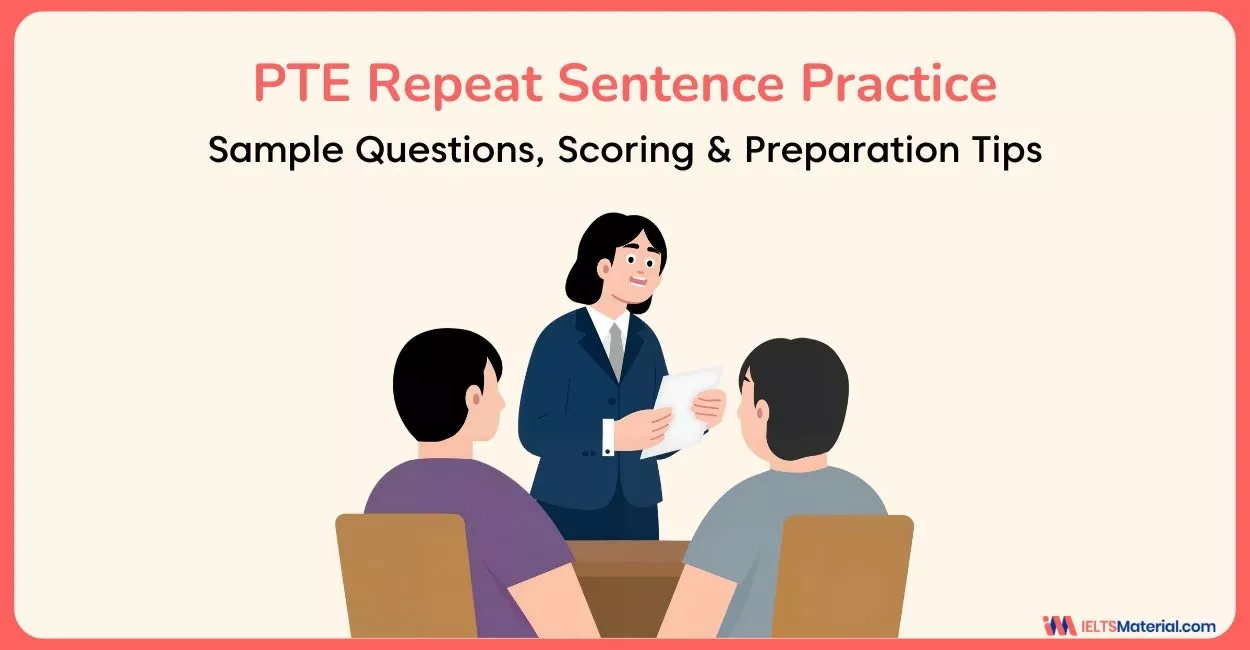IELTS Validity - How Long is IELTS Score Valid For?
5 min read
Updated On
-
Copy link
Want to know about how long IELTS score would be valid? Get the answer to the IELTS Validity - How long is IELTS score valid and dive into the misconceptions, reason behind the validity, and the importance of IELTS scores.
Table of Contents

Limited-Time Offer : Access a FREE 10-Day IELTS Study Plan!
If you're planning to take the IELTS exam, you've likely got some big goals in mind but keep in mind about the IELTS Validity. Whether you're eyeing that dream university abroad or hoping to immigrate to an English-speaking country, your IELTS score is a crucial piece of the puzzle. But have you ever wondered how long these hard-earned scores remain valid? Before sending your IELTS Band Score to the universities, it is vital to check whether the scores are valid.
Let's dive into the world of IELTS validity and uncover some lesser-known facts that might surprise you.
The Two-Year Rule: More Than Just a Number
Firstly, remember that IELTS scores are valid for two years from the date of issue. It's a simple rule, but the reasoning behind it is fascinating. This timeframe isn't arbitrary; it's rooted in linguistic research on second language attrition – a fancy term for how quickly we can lose our language skills when we don't use them regularly. You might be wondering when exactly this two-year countdown begins. Is it from the day you sit for the IELTS exam? Not quite. The validity period kicks off from the day your IELTS results are issued.
The table below shows a quick breakdown of the test format, results release date, and the starting time of the validity period.
|
Test Format |
Results Release Time |
Validity Period Starts |
|
Computer-based |
5-7 days after test |
From the results issue date |
|
Paper-based |
13 days after test |
From the results issue date |
Once those two years are up, your scores are automatically deactivated. There would be no extensions or exceptions for any individual to submit the same score. If you need a valid score to be sent, you need to appear for the IELTS exam again.
Register yourself in our IELTS online classes for tips and tricks important for your IELTS preparation.
Myths vs Reality About IELTS Validity
Whether you are appearing for the IELTS Academic or General Training, you might have come across some common misconceptions. You might have heard that the IELTS validity varies by country or differs between the test modules. This is just one misconception; however, there are many more about the IELTS Validity which you must know and understand the difference between the misconception and reality.
|
Misconception |
Reality |
|
Validity varies by country |
False - 2 years worldwide |
|
Different for Academic vs. General Training |
False - 2 years for both |
|
Computer-based tests have longer validity |
False - 2 years regardless of format |
The Science Behind the Expiry Date
You might be wondering why two years specifically and not one year or three. The answer lies in the fascinating world of language acquisition and loss. Research shows that language skills can begin to deteriorate surprisingly quickly when not used regularly. This is the reason whether you are taking the Academic module or the IELTS General Training.
Here's how different aspects of language can be affected:
|
Language Aspect |
Potential Attrition Effects |
|
Grammar |
Difficulty with complex structures |
|
Vocabulary |
Reduced word recall and usage |
|
Fluency |
Increased pauses, slower speech |
|
Pronunciation |
Slight shifts toward a native accent |
Join our free IELTS webinars to understand the different aspects of the IELTS exam and score better!
Why is Second Language Loss or Attrition Crucial in IELTS?
When we talk about IELTS validity, we often encounter the term "second language attrition." But why is this concept so critical to the IELTS ecosystem? Let's unpack this linguistic phenomenon and its significance for test-takers and institutions alike.
The Linguistic Tightrope Act
Imagine your English language skills as a finely tuned musical instrument. Without regular practice, even the most beautifully played melody can become discordant over time. This is essentially what happens with second language attrition – your hard-earned language skills may gradually diminish if not consistently used or refreshed.
For IELTS, this concept is more than just academic curiosity; it's the foundation of the test's validity period. The two-year timeframe isn't arbitrary – it's based on extensive research into how quickly language skills can deteriorate when not actively maintained.
The Impact on Different Language Skills
Attrition doesn't affect all aspects of language equally. Here's a breakdown of how different skills might be impacted over time:
|
Language Skill |
Potential Attrition Effects |
|
Speaking |
Reduced fluency, increased hesitation |
|
Listening |
Difficulty understanding rapid or accented speech |
|
Reading |
Slower comprehension, especially with complex texts |
|
Writing |
Less sophisticated vocabulary and structure use |
Want to know more about IELTS? Learn more about the IELTS Test Pattern!
Why It Matters for IELTS Scores
Now, you might wonder, "If I scored a Band 7, won't I always be at that level?" Not necessarily. Your IELTS Band Score is a snapshot of your English proficiency at a specific moment in time. The validity period acknowledges that language skills are dynamic and can change – for better or worse – over time.
Institutions that accept IELTS scores (universities, immigration departments, employers) rely on these scores to be an accurate representation of a candidate's current language abilities. If scores remained valid indefinitely, they might not reflect a person's true language capability years down the line.
The Motivational Factor
Understanding language attrition can be a powerful motivator for IELTS test-takers. It underscores the importance of:
- Continuous learning: Even after achieving your target score, the journey doesn't end.
- Practical application: Using English regularly in real-life contexts to maintain and improve skills.
- Strategic timing: Planning your IELTS test date in alignment with your academic or professional goals.
Combating Attrition: A Proactive Approach
Being aware of language attrition empowers you to take proactive steps. Here are some strategies to keep your English skills sharp throughout the validity period and beyond:
- Immersive experiences: Seek out English-language environments, even if virtual.
- Regular self-assessment: Periodically test your skills to identify any areas of decline.
- Targeted practice: Focus on maintaining and improving weaker areas identified in your IELTS test.
The Road Ahead: Planning with Precision
Understanding IELTS validity is crucial for planning your international education or migration journey. If you're applying to universities, check their specific requirements – some may accept scores that are slightly older under certain conditions. For immigration purposes, always verify the most current policies of your destination country.
Here's a quick guide to consider when planning your IELTS journey:
|
Purpose |
Considerations |
|
University Application |
Check individual university policies |
|
Immigration |
Verify country-specific requirements |
|
Professional Certification |
Consult relevant professional bodies |
Remember, there's no way to extend your IELTS validity once it expires. If you find yourself bumping up against that two-year limit, it's time to showcase your skills again. Look at it as an opportunity – a chance to demonstrate how much you've improved since your last test.
In conclusion, the two-year validity of IELTS scores is more than just a rule – it's a reflection of the dynamic nature of language skills. It ensures that when you step into that university lecture hall or begin your new life abroad, your English is as bright and polished as your ambitions. So embrace the challenge, keep your skills sharp, and let your IELTS score be the key that unlocks doors to your future.
Also check :
- How to Get Band 8 in IELTS Exam?
- IELTS Test Dates 2025 India: Month-wise IELTS Exam Calendar
- IELTS Test Centres: Find the Locations & Book Your IELTS Exam
- Top 15 Universities in Canada Accepting IELTS Score 6
- Top 15 Universities in Australia Accepting IELTS Score 6
- Top 15 Universities in UK Which Accepts IELTS Score 6
- Top 15 Universities in Canada which accepts IELTS Score for MBA
Frequently Asked Questions
Can I use my IELTS score after two years?
Does the IELTS validity period vary by country?
Can I retake the IELTS exam after two years?
How can I improve my IELTS score if I need to retake the test?
Learn everything about IELTS

Start Preparing for IELTS: Get Your 10-Day Study Plan Today!
Explore other IELTS Articles

Kasturika Samanta

Haniya Yashfeen
Recent Articles

Kasturika Samanta









Post your Comments